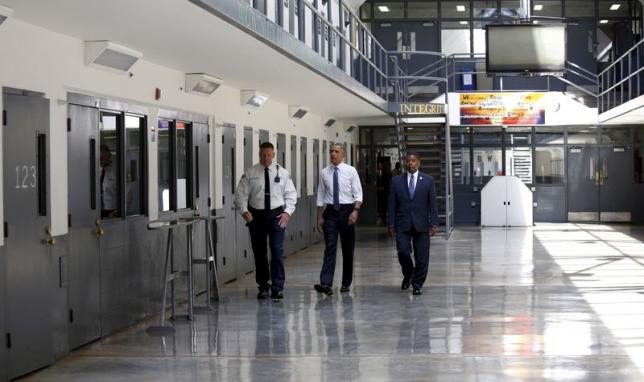US Justice Department to release 6,000 inmates nationwide to decongest jails

The US Justice Department will release about 6,000 inmates early, the largest one-time release of federal prisoners, to ease jail congestion and provide relief to drug offenders.
They will be released by the department's Bureau of Prisons between Oct. 30 and Nov. 2, according to the Washington Post.
The report said about two-thirds will go to halfway houses and home confinement before they are put on supervised release while one-third are foreign prisoners who will be deported.
Last year the US Sentencing Commission reduced the punishment for future drug offenders, which became retroactive.
The commission's decision is in addition to the effort by President Obama to grant clemency to certain nonviolent drug offenders that resulted in the release of 89 prisoners.
The panel said the change in sentencing guidelines could pave way for 46,000 of the nation's 100,000 drug offenders to be released early, with 6,000 comprising the first batch.
"The number of people who will be affected is quite exceptional," said Mary Price, attorney for the Families Against Mandatory Minimums, an advocacy group that supports sentencing reform.
The commission said an additional 8,550 inmates are eligible for release between Nov. 1 this year and Nov. 1, 2016.
The Justice Department has instructed prosecutors not to charge low-level, nonviolent drug offenders who have no connection to gangs or large-scale drug organisations.
Congress did not reject the change in sentencing guidelines, which became effective on Nov. 1, 2014.
The new policy is called "Drugs Minus Two," where two years is deducted from eligible prisoners' sentences.
"Even with the Sentencing Commission's reductions, drug offenders will have served substantial prison sentences," Deputy Attorney General Sally Yates said. "Moreover, these reductions are not automatic. Under the commission's directive, federal judges are required to carefully consider public safety in deciding whether to reduce an inmate's sentence."
Prisoners must petition a judge who will decide whether to reduce the sentence.











